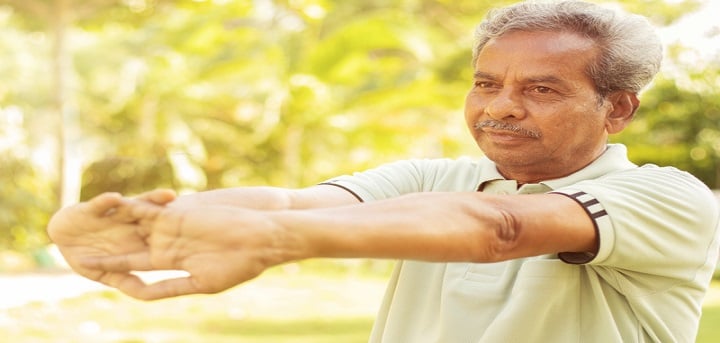10 tips for fall prevention during the pandemic

Published on 09 October 2020 04:21 PM
COVID-19 has confined many older and vulnerable adults to their homes for a long period of time and continues to do so as restrictions in certain areas get tighter. This, as well as restricted access to healthcare resources during the COVID-19 pandemic, could mean that ongoing fall accidents are not reported and the continued lockdown restrictions may have exposed many older adults to more fall risk factors, such as, inactivity, social isolation and anxiety.
10 tips for fall prevention during the pandemic
While fall accidents are very common, there are steps that older adults can take to minimise risks from falling, even during the pandemic.
1.Try to stay active and avoid sitting for prolonged periods. Around 30 minutes of activity per day is a good target and ideally these activities should increase your heart rate slightly and make you feel warmer (e.g. moderate activities). This could include activities like brisk walking, hiking, or heavy-duty gardening or cleaning.
Age UK and Parkinson’s UK both have great guides on exercises that can performed safely at home for a variety of ability levels. Age UK also offer a variety of local classes which can be found here, alongside advice of how these are affected by current COVID-19 regulations.
2. If you experience a fall, tell your GP. They can help you identify possible reasons that you fell and provide medical guidance on any related medical issues or medications, to reduce future risk.
3. If you live alone and are concerned about falling, it is useful to make a falls plan of how you would get help should you need it.
4. Check your home for hazards. Ensure each room is well lit, stairs and floors are free of clutter and use non-slip mats under rugs.
5. Wear well-fitting footwear with good grip. Avoid shoes that easily slip off your feet, like backless slippers or sandals. Avoid loose-fitting, trailing clothes, such as long dressing gowns, which can be a tripping hazard.
6. Avoid excessive alcohol consumption.
7. Avoid unnecessary risks. If you are not confident that you can perform a task safely then ask for help (if available) or try to find an alternative.
8. Have your sight and hearing tested, especially if you notice you feel unstable.
9. Try to maintain regular telephone or internet contact with friends and family to reduce feelings of social isolation when face-to-face contact is not possible.
10. If you have been recently inactive and feel anxious or fearful of falling, then setting small achievable goals to gradually increase activity levels again can help rebuild confidence.
Other ways to help
The lockdown period has been isolating for all of us but especially so for many older adults. As such, it’s a great time to keep in contact with older relatives or neighbours. A quick phone call can really help reduce feelings of social isolation.
If you would like to help your local neighbourhood, Age UK provide a fantastic scheme called Neighbourly Volunteering, which supports older people staying at home during the pandemic.
